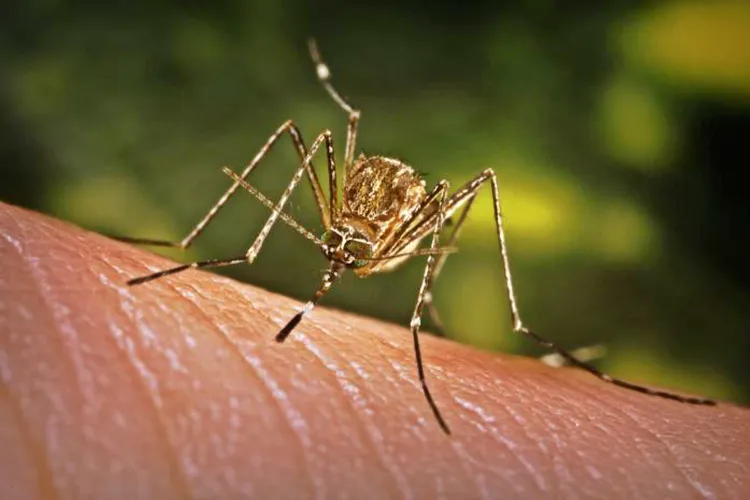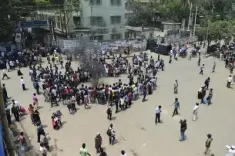Why Are Dengue Fever Cases Spiking in Southern Vietnam?

Synopsis
Key Takeaways
- 7,398 cases of dengue reported in Ho Chi Minh City in 2025.
- 136% increase from the previous year.
- Health authorities recommend proactive measures to combat the outbreak.
- Early onset of the rainy season raises concerns.
- WHO classifies dengue as a Grade 3 emergency.
Hanoi, May 16 (NationPress) Ho Chi Minh City, the southern economic center of Vietnam, has reported 7,398 cases of dengue fever from January 2025 through May 11, marking an astonishing 136 percent increase compared to the same timeframe in 2024, according to the Vietnam News Agency.
Experts have cautioned that this season for dengue has commenced earlier than typical, presenting a heightened risk of extensive outbreaks, as per the city's Centre for Disease Control.
With the arrival of the rainy season, Ho Chi Minh City and surrounding southern provinces often witness a surge in dengue infections.
Health officials are urging the public to stay alert and adopt preventive measures to curb the disease's spread, stated the center.
Recommended strategies include eradicating mosquito breeding sites by eliminating standing water, treating larvae, using mosquito nets for sleeping, and maintaining clean water containers and drainage systems.
In the first four months of 2025, Vietnam has recorded 24,900 dengue cases along with three fatalities, reported Xinhua News Agency citing the National Statistics Office.
The World Health Organisation identifies dengue as a viral infection transmitted by mosquitoes, prevalent in warm, tropical climates. It is triggered by any of the four closely related dengue viruses (known as serotypes), which can result in a wide range of symptoms, from extremely mild to severe cases that may necessitate hospitalization. While there is no specific treatment for the infection, symptom management is possible.
In 2023, the WHO classified dengue as a Grade 3 emergency due to increasing outbreaks in various countries. Dengue epidemics typically follow seasonal trends, with transmission rates peaking during and after rainy periods. Several factors, including a high mosquito population, vulnerability to circulating serotypes, and favorable climatic conditions, significantly influence the reproduction and feeding behaviors of mosquito populations, as well as the incubation period of the dengue virus.
Unplanned urbanization and climatic issues such as heat waves and elevated temperatures have exacerbated the severity, frequency, duration, and distribution of dengue in recent years. Furthermore, challenges such as insufficient surveillance and control initiatives, along with staffing shortages, have persisted. The lack of a cohesive programmatic strategy continues to challenge affected countries.








